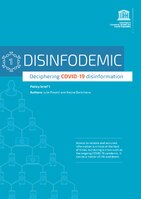
Photo from wikipedia
Nursing has always been a stressful job affecting the physical and mental health of the nurses, but the new medical context of the COVID-19 pandemic has enhanced this issue. The… Click to show full abstract
Nursing has always been a stressful job affecting the physical and mental health of the nurses, but the new medical context of the COVID-19 pandemic has enhanced this issue. The objective of this paper is to study differences between non-employed and employed nursing students in the medical system of Romania before and during the epidemic using matching methods and a sample of 526 nursing students. Stressors and strategies for coping with stress were also identified during the pandemic. The results indicated that employed students were more vulnerable to stress compared to non-employed ones before and during the pandemic. Females registered significantly higher stress scores compared to males in the period of the epidemic. The analysis of the overall sample suggested that gender and environment were significant stress factors during the pandemic, but living conditions were not relevant. The most effective coping strategies against stress for nurses during the COVID-19 crisis were based on self-control and the spiritual dimension, unlike the previous period when other colleagues’ support helped most nurses to overcome difficult working conditions. The implications of this study might help medical management in ensuring a less stressful environment for nurses during the epidemic.
Journal Title: Healthcare
Year Published: 2021
Link to full text (if available)
Share on Social Media: Sign Up to like & get
recommendations!